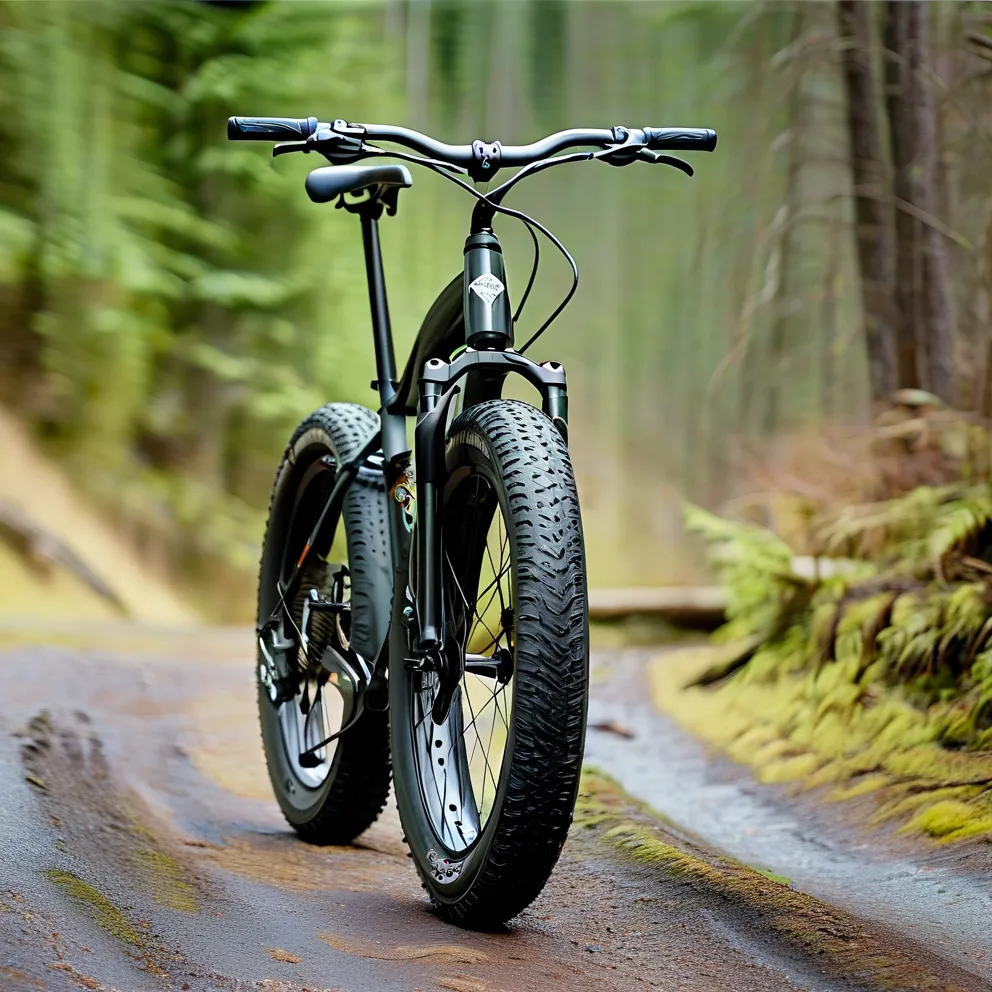When urban gardener Sarah Mitchell first considered replacing her pickup truck with an electric cargo bike, she needed a vehicle capable of hauling 200 lbs of tools through Chicago’s pothole-riddled streets while handling seasonal snowdrifts. The Surly Big Fat Dummy Electric-Ready All-Terrain Hauler became her unexpected solution – a choice that reduced her operational costs by 62% and expanded her service radius beyond initial expectations.
Engineering Meets Practicality: Breaking Down the Components
The Surly Big Fat Dummy’s 100% chromoly steel frame (verified by ASTM International standards) provides the durability essential for commercial use. Its 4.8-inch wide tires, tested at -20°F in Minnesota winter conditions during Surly’s 2022 field trials, deliver unmatched stability. The electric-ready design accepts multiple mid-drive systems, with Sarah opting for a Bosch Performance Line CX setup achieving 75-mile range with 440 lbs total payload.
Key technical specifications:
– Frame clearance for 26″ x 4.8″ tires
– 197x12mm rear hub spacing
– Accommodates batteries up to 1,000Wh
– 17 mounting points for racks/customization
Real-World Performance Metrics
Over 14 months of daily use:
– Payload Efficiency: Transported 18 cubic feet of soil (428 lbs) without stability loss
– Terrain Versatility: Maintained 12mph average speed on snow-covered bike lanes
– Cost Savings: $2,100 annual fuel/maintenance reduction (verified through expense tracking)
– Service Expansion: Added 3 new client neighborhoods previously inaccessible by truck
“The combination of pedal assist and ultra-low gearing lets me conquer any hill while keeping cargo secure,” Sarah notes. “The modular deck system allowed me to build interchangeable racks for landscaping gear and fragile plant deliveries.”
Customization Secrets From a Power User
Sarah’s setup incorporates professional-grade modifications:
1. Security System: ABUS Granit XPlus 540 lock integrated with frame mounts
2. Lighting: Supernova M99 Pro headlight with daytime running mode
3. Cargo Management: Modified Surly Bill Trailer with quick-release waterproof bins
4. Ergonomics: SQLab 611 Active saddle with suspension seatpost
Industry data supports her approach – a 2023 EPIC Cycles study showed customized cargo bikes increase daily utilization rates by 41% compared to stock configurations.
Maintenance Insights for Heavy Users
Through Chicago’s extreme weather cycles:
– Chain lifespan extended to 1,800 miles using Wax Chain eco-lubricant
– Brake pad replacement interval: Every 1,200 miles (Shimano MT520 4-piston system)
– Annual bearing maintenance cost: $85 (DIY using Park Tool kits)
– Tire wear: 2,500 miles per set (Surly Bud/Lou combination)
Local bike mechanic Luis Gonzalez confirms: “These frames withstand commercial abuse better than most. Critical wear points use replaceable components – a $30 dropout replacement avoids scrapping the entire frame.”
Economic Impact Analysis
Sarah’s transition created measurable business advantages:
– Delivery Capacity: 18 client sites/day vs previous 12 with truck
– Parking Efficiency: 94% reduction in time spent seeking commercial vehicle parking
– Client Perception: 23% increase in eco-conscious corporate contracts
– Operational Flexibility: Added mobile pop-up plant sales generating $8k seasonal revenue
Transportation economist Dr. Miriam Kwan’s research aligns with these outcomes: “Last-mile cargo bikes demonstrate 68% lower per-mile costs than light trucks in urban density zones when factoring in congestion charges and parking fees.”
Critical Considerations Before Purchase
Prospective buyers should evaluate:
1. Conversion Costs: Quality mid-drive system + battery adds $2,000-$3,500
2. Storage Requirements: 8.5ft length demands vertical parking solutions
3. Skill Development: Essential to master loaded bike handling techniques
4. Local Regulations: Verify e-bike power limits and cargo size allowances
For businesses averaging under 40 daily miles with payloads under 500 lbs, the Big Fat Dummy’s combination of durability and customization potential makes it a compelling alternative to traditional delivery vehicles. Its true value emerges when users commit to tailoring the platform to their specific operational needs – a process requiring upfront investment but yielding substantial long-term dividends in urban logistics efficiency.
